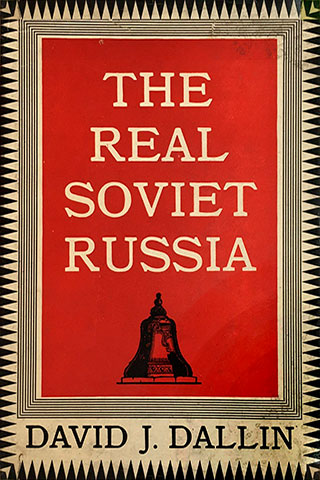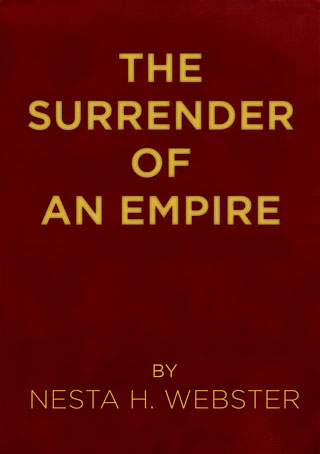Believe Nothing the Government Says
If establishment interests in protecting nuclear power predominate, we will be told that there will be no adverse radiation consequences for Americans. On the other hand, if it will further promote government interests in regulating the production, transportation, and sale of foods, I can imagine our being told that such radiation poses too much danger to Americans – particularly "the children" – to allow independent farmers to avoid detailed regulation of their produce…

Whenever something is wrong, something is too big.
~ Leopold Kohr.
Recent events in Japan bring to mind Leopold Kohr’s book, The Breakdown of Nations, wherein he develops the "size theory of social misery." In words that help to explain the processes of decentralization that are transforming vertically-structured organizations into horizontal networks, Kohr tells us that "only relatively small bodies – though not the smallest, as we shall see – have stability… Beyond a certain size, everything collapses or explodes." He adds that "the instability of the too large … is a destructive one. Instead of being stabilized by growth, its instability is emphasized by it." [Emphasis in original.] An economist of Austrian birth, and with a strong anarchist bent, Kohr was a great influence on E.F. Schumacher, best known for his book, Small Is Beautiful.
Kohr’s views confront, head-on, the alleged virtue of "bigness" in which our institutionally-directed culture has been thoroughly indoctrinated. The benefits that derive from "economies of scale;" the "bottom-line" authority of "power" to resolve difficulties; the ego-gratification that some people find in being part of a world-dominating "empire;" are just some of the attractions that seduce us into embracing the cult of size. What sound is more prevalent at sporting events than the chant "we’re number one"?
But a principle that was not sufficient to sustain the dinosaurs into the present, is being challenged in the nature of the systems by which we humans organize with one another. While giant nation-states, and sprawling multi-national corporations, express – in the minds of many – an article of faith, there is a growing sense that our vertically-structured world no longer meets our expectations for both liberty and order. Decentralized technologies are causing us to rethink and redefine what we mean by "society."
Some of the unforeseen consequences of the recent 9.0 earthquake in Japan are providing empirical support for Kohr’s warnings. There are lessons waiting to be learned from the literal "fallout" of radiation from this damaged facility.
The unexpected problems produced at this site by the quake should cause thoughtful minds to question not nuclear power per se, but the practice of centralizing the production and distribution of electrical energy. There are more considerations involved than just calculating the scale economies associated with huge power generators connected into national grids. Not only are such structures subject to the same unpredictabilities and uncertainties of other complex systems – periodic regional power blackouts will be recalled – but the same implications that attend political centralization are present. I read a wonderful quotation from Jacques Ellul – neither the origins nor the exact wording I recall – which said, in essence, "show me how electrical power is distributed in a society, and I will show you how political power is distributed." It is no idle coincidence that political authority and electrical energy are each spoken of in terms of "power."
I don’t know whether the aftermath of the nuclear-power-plant meltdown in Japan will prove harmful or neutral to those outside the immediate area. I do suspect that those in the higher echelons of the corporate-state establishment are busy formulating an "official" prognosis that will best serve its interests. If establishment interests in protecting nuclear power predominate, we will be told that there will be no adverse radiation consequences for Americans. On the other hand, if it will further promote government interests in regulating the production, transportation, and sale of foods, I can imagine our being told that such radiation poses too much danger to Americans – particularly "the children" – to allow independent farmers to avoid detailed regulation of their produce. Keeping in mind George Carlin’s comment that "I never believe anything the government tells me," each of us will bear the burden that we have heretofore ignored, namely, to bore deeply into the question "how do we know what we know?"
There is a cryptic message in this disaster which, predictably, will not be addressed by institutional voices, but whose decipherment may be aided by a synthesis of Kohr’s and Ellul’s insights. At a time when the decentralization of social systems has taken on great importance, it is timely to consider the advantages that could arise from a more localized – perhaps even individualized – source of electrical power. A principal benefit arising from both a free market system and the private ownership of property – concepts that are corollary expressions of each other – is that both individual liberty and social order are maximized when decision-making authority diverges into independent persons, rather than converging into centralized elites. A major problem with institutionalized systems – particularly the state – is that the adverse consequences of their actions are multiplied, exponentially, as the range of their activities is increased.
If, for example, electrical power is produced and generated centrally, problems that arise will have a much wider range of consequences (e.g., might affect an entire region of the country) than if it is produced locally. The same dynamics are at work in other areas of economic activity: if an individual businessman makes an error in judgment, he and those with whom he associates will suffer the loss. If a governmental agency (e.g., the Federal Reserve) makes such an error, the entire country may suffer the effects.
So, too, if an individual, a neighborhood, or a small community, operating its own electric power system, makes a mistake, the consequences will be experienced more locally than when the power source is centralized. What better illustration of this than the Japanese incident: the meltdown of a nuclear-power plant could send radiation over many thousands of miles, adversely affecting people on other continents. This contrast is made even greater by the realization that only in large, centralized systems is electricity going to be produced by nuclear energy. An individual or neighborhood system is not likely to employ a power source requiring so much investment and involving such potential for external harm.
I have no particular case to make either for or against nuclear power, other than of my concern for the institutionalization of the system, and the likelihood that, as with other large corporate undertakings and their propensity for employing the coercive powers of the state, there will be a more widespread socialization of costs. It may be that the very nature of nuclear power necessitates largeness and concentration in its generation. In the same way that only powerful nation-states – and not your next-door neighbor – would desire to own nuclear weapons, there is a life-threatening quality that inheres in the marriage of power and massive size. Leopold Kohr’s admonitions must be given serious attention, as humanity continues to get crushed by the weight of institutional monoliths. Jacques Ellul gets to the essence of my objections when he sees the connection between electrical and political power.
As I watched television reports that warned of the possibilities of nuclear radiation flowing from Japan to the United States, I could not avoid the allegorical symmetry in which Japan – the victim of intentional nuclear attacks by America in 1945 – might, unintentionally, be providing a literal form of "blowback" (i.e., Newton’s Third Law of Motion) to the country whose government unleashed the atomic secrets that would have been best kept from the destructive hands of state power.
As I witness our world giving in to the "dark side" forces of our humanity, I am reminded of the film Koyaanisqatsi – Life Out of Balance. Produced in 1982, the film is an unspoken collection of photographic images – many in exaggerated slow motion – and Philip Glass music. The film takes its title from a Hopi Indian word meaning "life out of balance," and provides a strong visual and emotional sense of the insanity of how we live. While watching news reports from Japan, my unconscious mind kept reminding me of the Hopi phrase that appears in this film: "a container of ashes might one day be thrown from the sky, which could burn the land and boil the oceans."
I was reminded, as well, that two of the people to whom this film was dedicated were Leopold Kohr and Jacques Ellul!
Copyright © 2011 by LewRockwell.com. Permission to reprint in whole or in part is gladly granted, provided full credit is given.









[…] War is Crime – Believe Nothing the Government Says […]
by Registering (signing over to the state) your Biological Property (your body and the bodies of your children), creating a Birth Certificate (a Financial Security Instrument representing proof of parental consent in signing over the child) you are thus Consenting to the State’s Ownership of You and Your Children.
The State then creates a child’s very first Legal PERSON, with the parental signing of the Birth Certificate, which is given a “commercial value”. If you have an older-style Birth Certificate, look on the Reverse side of it, to see 3 points of interest.
1) A 6-10 digit Number that you have never used in your life.
2) The words “Revenue Receipt” on the left side of this number.
3) The words “For Treasury Purposes Only” on the right side of the number.
Incidentally, before the 1900’s, people USED to write the evidence of a birth in their Family Bible.
This first Legal Person attached to you, is known as a “NATIONAL CITIZEN” which later becomes synonymous with being a “Government Employee”, when you SUBMIT (give in) an APPLICATION (to beg) for REGISTRATION (to sign over your rights) to become a SINner (by signing up for the Fraud called Social Insurance or Social Security).www.stopthepirates.blogspot.com